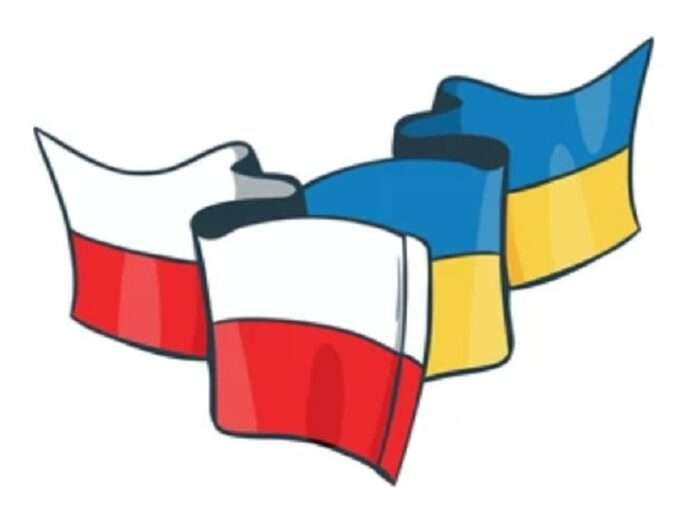It was explained last month how “The Sejm’s Approval Of Silesian As A Regional Language Should Prompt Deep Reflection From Poles”, but then President Andrzej Duda from the previous conservative-nationalist government vetoed the new liberal-globalist coalition’s bill at the end of May. His official website explained the reasons here, which mostly concern the widely held scientific view that Silesian is just a dialect of Polish, not its own language like Kashubian which was granted regional status in 2005.
None of the media that reported on this thought much of the national security arguments that he shared against making Silesian a regional language. Duda worried that representatives of other ethnolect groups could be emboldened by the precedent set by granting Silesian this status and warned that these processes could be exploited from abroad to divide Poland. He then concluded by declaring that “cultivating the native language serves to protect the preservation of national identity.”
Although Duda implied that Russia could meddle in Poland through these means when he wrote that these threats could be “related to the war being waged on the eastern border”, the case can more compellingly be made that Ukraine poses a much greater danger to his country. The southeastern part of modern-day Poland used to be part of the “Ruthenian Voivodeship” during the Commonwealth era and comprised a significant number of folks who’d nowadays be called Ukrainians.
It was on this former administrative and enduring demographic basis that the short-lived “West Ukrainian People’s Republic” claimed some of these same lands and even those a bit further westward along the Carpathian Mountains. The “Ukrainian People’s Republic” also claimed other more northerly parts of modern-day Poland’s eastern border on the same pretext that they were mostly populated by people that Kiev considered to be more Ukrainian than Polish.
During the Second Polish Republic, efforts were made to (largely unsuccessfully) Polonize the Ukrainians (some of whom later terrorized and genocided Poles), and then many were exchanged with the USSR for Poles living in Soviet Ukraine after World War II changed the borders. Other exchanges with Soviet Belarus and Lithuania, as well as the expulsion of Germans, led to the “Polish People’s Republic” becoming the first ethno-religiously homogenous Polish state since Mieszko I’s founding of Poland in 966.
This new demographic state of affairs remained in place up until 2022, after which a few million Ukrainians flooded into Poland, a sizeable number of whom still remain there. Although they’re scattered throughout the country, responsible members of the state like Duda – whose party admittedly facilitated this process for the purpose of turning Ukraine into its “junior partner” – fear that they might resettle in their formerly claimed border regions and one day agitate for “union” with Ukraine.
Unlike Silesian, their language is universally recognized as distinct from Polish, so the stage would be set for Ukrainians to exploit linguistic pretexts per the proposed Silesian precedent to get the state to extend them a degree of cultural autonomy as the first step towards political autonomy sometime in the future. Two of Kiev’s official positions over the past year show that Poland can’t rule out the scenario of its neighbor weaponizing this process against it.
Zelensky’s senior advisor Podolyak declared last August that “[Poland] will remain [our closest partner and friend] until the end of the war. After it’s over, of course, we will have a competitive relationship, of course, we will compete for various markets, consumers, and so on. And, of course, we will clearly adopt pro-Ukrainian positions, protect these interests, fiercely defend them.” The prediction of post-conflict competition between these two doesn’t bode well for Poland’s territorial integrity as was explained.
Several months later in January, Zelensky signed a decree “aimed at preserving the ethnic identity of Ukrainians in Russia”, specifically within the parts of his neighbor’s modern-day borders that were previously claimed by the “Ukrainian People’s Republic”. A similar decree could be signed with regards to Poland if their predicted post-conflict competition worsens, in which case Poland’s territorial integrity would definitely be threatened via the fifth column of Ukraine’s potentially border-dwelling nationals.
Poland couldn’t rely on the US or the German-led EU for support in that event since both have interests in turning Ukraine into their joint bastion of influence on the continent after the conflict finally ends. They’d sell Poland out in a second to advance what their decisionmakers consider to be their national interests. Ukrainian losses in the east and south to Russia could therefore be compensated by gains in the West at Poland’s expense, though not right away of course, but sometime in the future.
Polish politicians like returning Prime Minister Tusk and his ruling liberal-globalist coalition would eagerly go along with this since they’ve already comprehensively subordinated their country to Germany, which has its own interests in Ukraine. Their ideology also predisposes them to thinking that it wouldn’t make a meaningful difference if they lost those lands since the partial open borders regime with EU-aspirant Ukraine by that point would render the consequences for many people moot for the most part.
It’s only those more responsible members of the state like Duda, whose party facilitated the large-scale migration of Ukrainians into Poland as was earlier written, who care enough about Poland to deny Ukraine the legal pretext for advancing its possibly revived claims per the proposed Silesian precedent. It’s these sensitive national security reasons upon which he vetoed the bill to make Silesian a regional language, which have everything to do with latent Hybrid War threats posed by Ukraine, not Russia.







